|
|
|
| CUBG course on ex situ conservation techniques completed |
 |
Text Size: A A A |
|
Ex situ conservation is defined as “The conservation of components of biological diversity outside their natural habitats”. It is one of two basic conservation strategies, alongside in-situ conservation. Ex situ conservation is also regarded as one of the important functions of botanic gardens and arboreta. However, Chinese botanical gardens and arboreta still face many challenges while practicing ex situ conservation.
To meet the need and improve capacity building, the Chinese Union of Botanical Gardens (CUBG) organized a training course on ex situ conservation techniques from October 24-27.
With experts from Xishuangbanna Tropical Botanical Garden (XTBG), Morton Arboretum, and National Tropical Botanical Garden of USA as teachers, 27 trainees from Chinese botanic gardens got a comprehensive understanding on ex situ conservation and had field practice.
The course mainly focused on collecting living organisms for botanic gardens, data record and management, establishment of living collections, seed germination and seedling propagation, seed bank, conserving genetic diversity, etc. It also included application of new techniques involving transfer of a target species away from its native habitat.
The successful examples of ex situ conservation at National Tropical Botanical Garden of USA were specifically introduced at the course.
The teachers at the training course were Profs.Chen Jin, Chuck Cannon, Drs. Shi Jipu, Sean Hoban, and Micheal DeMotta. 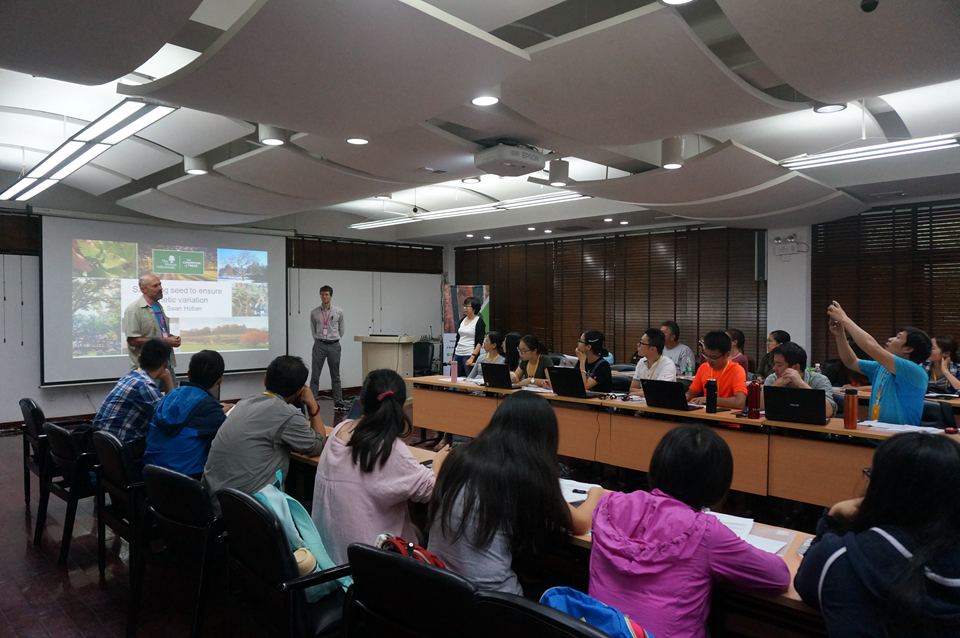 CUBG ex situ conservation training course 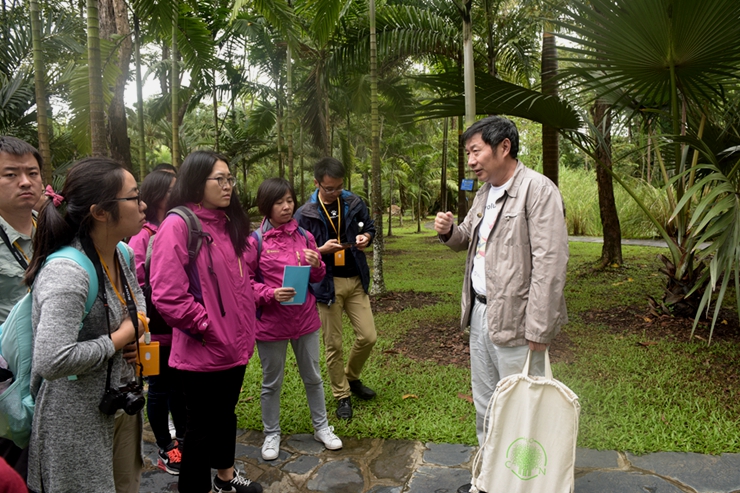
Prof. Chen Jin introduces establishment of living collections to trainees. 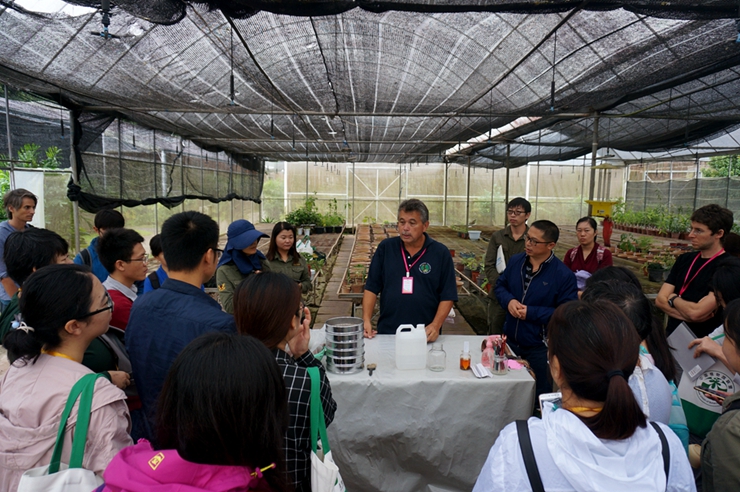
Dr.Micheal DeMotta introduces nursery managemen 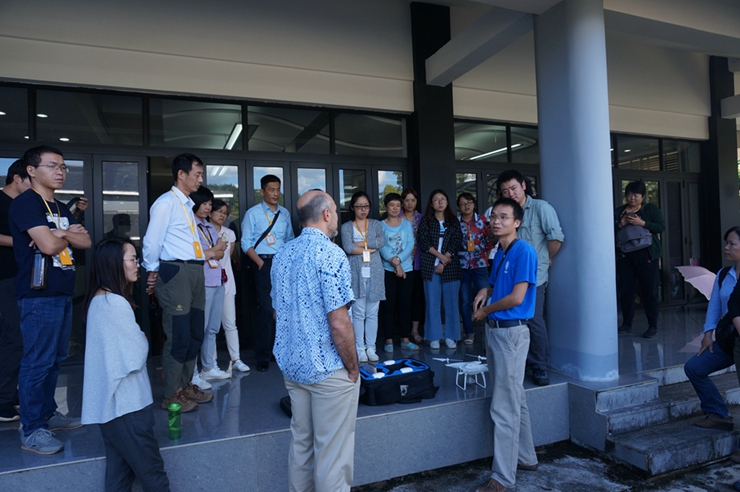
Dr. Deng Yun introduces application of unmanned aerial vehicle in ex situ conservation. 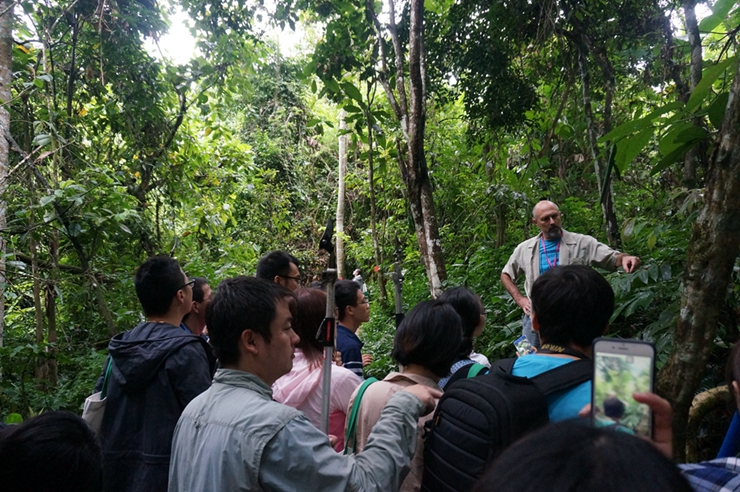
Prof. Chuck Cannon introduces sample collecting in the field 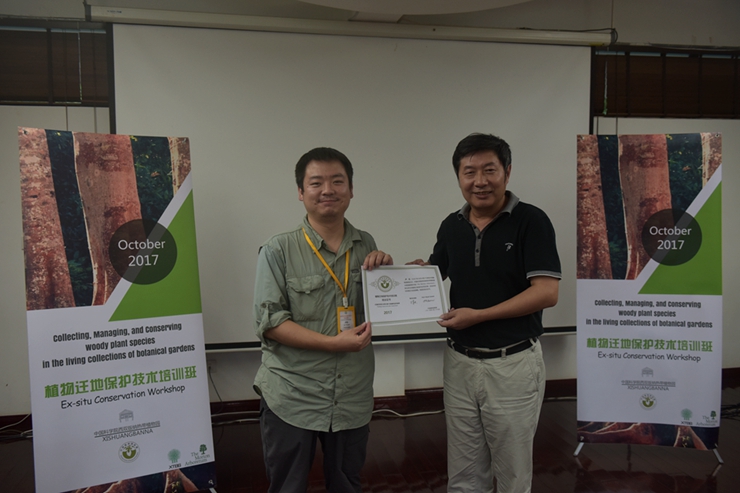
Prof. Chen Jin awards certificate of completion to trainees 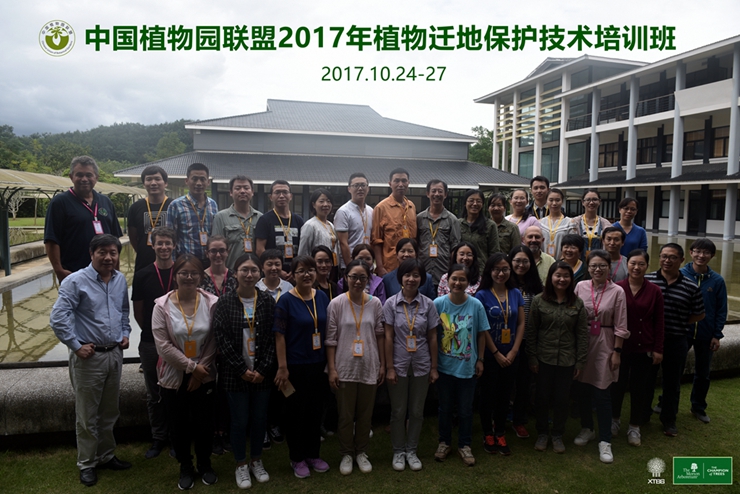
Teachers and trainees pose a photo. |
|







